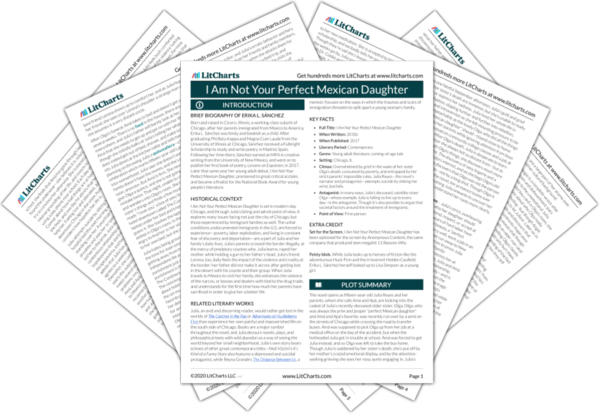Julia sits down and pulls out Camus’s
The Stranger. She gets lost in the
book until
Mr. Ingman approaches her and asks her about what she’s reading. When she reveals the book is teaching her a lot about “existential despair,” Mr. Ingman asks her once again if she’s okay—Julia admits she doesn’t know what it would be like to feel “okay” or “normal.” Mr. Ingman suggests she talk to someone—maybe a professional—but Julia says she’s fine. Mr. Ingman asks Julia gently not to let him down, and she promises him she won’t.
